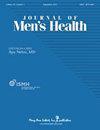维地内酯通过阻断gpx4介导的铁下垂减轻脑缺血再灌注损伤
IF 0.6
4区 医学
Q4 Medicine
引用次数: 0
摘要
脑缺血是目前世界上第三大死亡原因。在其并发症中,脑缺血再灌注(I/R)被认为是最不可避免的问题。为了解决这个问题,需要开发更多的药物。维德内酯是从干荷叶中提取的主要活性化学成分,具有广泛的药理作用。本实验建立氧葡萄糖剥夺/再灌注(OGD/R)模型。细胞计数试剂盒-8 (CCK-8)检测评估维地内酯对细胞生长的影响。实时定量聚合酶链反应(RT-qPCR)评估其对炎症的影响。我们采用2 ',7 ' -二氯荧光素(DCF)染色和铁检测试剂盒检测铁下垂。流式细胞术(FCM)和免疫印迹法检测细胞凋亡。结果表明,维代内酯能促进OGD诱导的HT-22细胞活力,减轻OGD/ r诱导的细胞炎症、OGD/ r诱导的铁下垂和OGD/ r诱导的细胞凋亡。在机械上,维代内酯通过介导谷胱甘肽过氧化物酶4 (GPX4)的表达来抑制OGD/ r刺激的铁下垂。综上所述,维地内酯可能通过阻断gpx4介导的铁下垂来减轻脑缺血再灌注(CIR)/I。本文章由计算机程序翻译,如有差异,请以英文原文为准。
Wedelolactone attenuates cerebral ischemia-reperfusion injury by blocking GPX4-mediated ferroptosis
Cerebral ischemia is currently the third leading cause of death worldwide. Among its complications, cerebral ischemia-reperfusion (I/R) is considered the most inevitable problem. To address this condition, there is a need for the development of more drugs. Wedelolactone, the main active chemical component extracted from dried lotus leaves, exhibits a wide range of pharmacological effects. Here we constructed an oxygen-glucose deprivation/reperfusion (OGD/R) model. Cell counting kit-8 (CCK-8) assays evaluated the impact of Wedelolactone on cell growth. Real-time quantitative polymerase chain reaction (RT-qPCR) assessed its effects on inflammation. We employed 2′,7′-Dichlorofluorescein (DCF) staining and an iron detection kit to measure ferroptosis. Flow cytometry (FCM) and immunoblot assays were utilized to investigate cell apoptosis. The results showed that Wedelactone promoted OGD-induced HT-22 cell viability and alleviated OGD/R-induced cellular inflammation, OGD/R-stimulated ferroptosis and OGD/R-induced apoptosis. Mechanically, Wedelactone inhibited OGD/R-stimulated ferroptosis via mediating glutathione peroxidase 4 (GPX4) expression. In conclusion, Wedelolactone may attenuate cerebral ischemia-reperfusion (CIR)/I by blocking GPX4-mediated ferroptosis.
求助全文
通过发布文献求助,成功后即可免费获取论文全文。
去求助
来源期刊

Journal of Men's Health
Medicine-Urology
CiteScore
0.70
自引率
28.60%
发文量
153
审稿时长
10 weeks
期刊介绍:
JOMH is an international, peer-reviewed, open access journal. JOMH publishes cutting-edge advances in a wide range of diseases and conditions, including diagnostic procedures, therapeutic management strategies, and innovative clinical research in gender-based biology. It also addresses sexual disparities in health, life expectancy, lifestyle and behaviors and so on. Scientists are encouraged to publish their experimental, theoretical, and descriptive studies and observations in as much detail as possible.
 求助内容:
求助内容: 应助结果提醒方式:
应助结果提醒方式:


